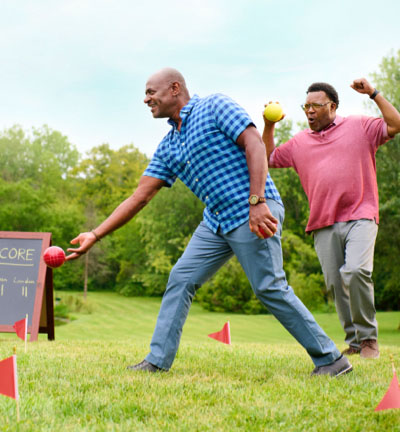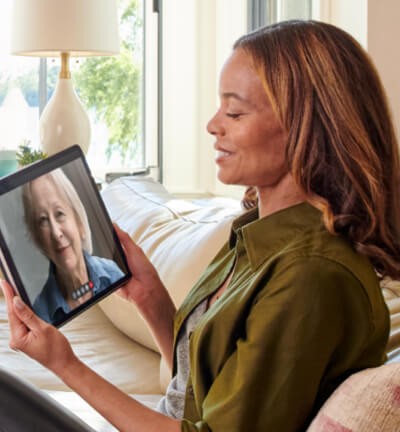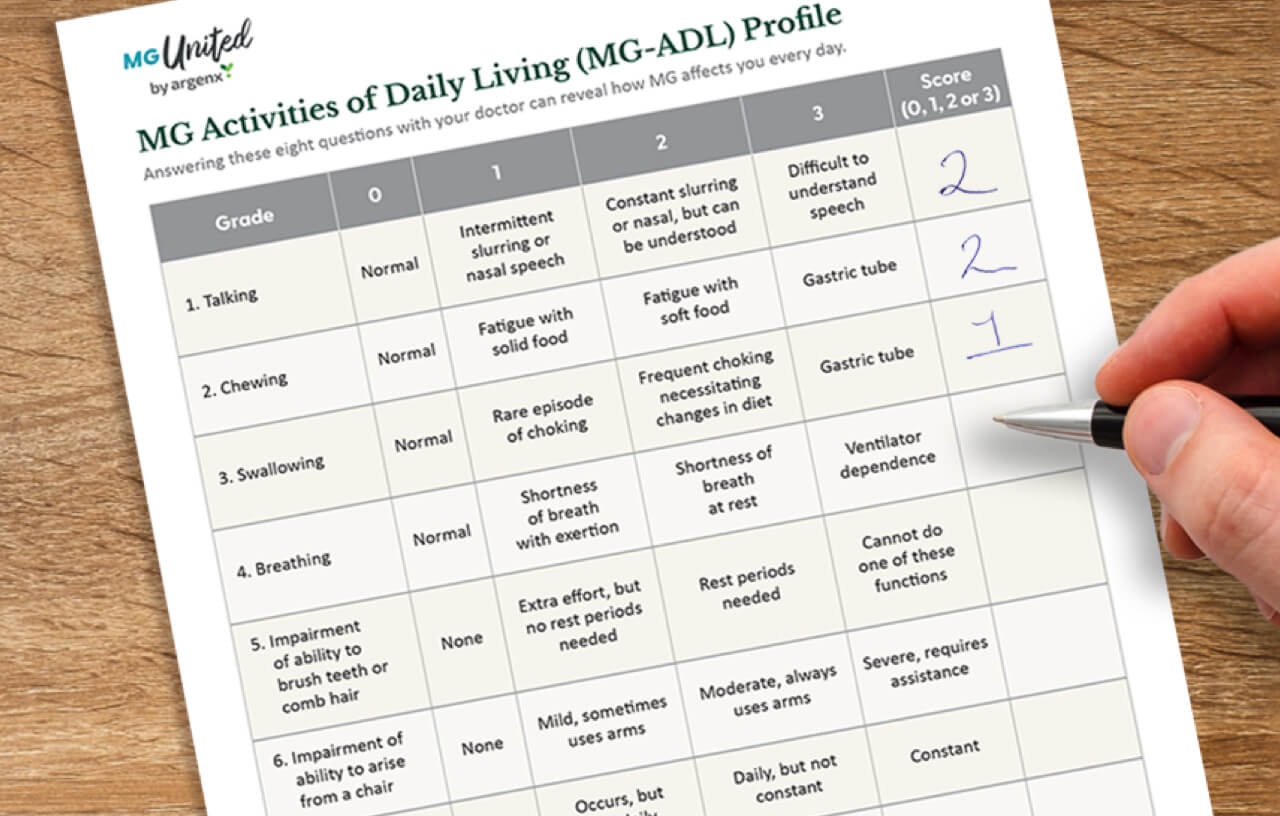Discover the connection between symptom-tracking knowledge and better everyday MG management.
A lot of detail can go into tracking MG symptoms, but better understanding it may help your daily living with MG. This quiz can help you identify your current level of symptom-tracking knowledge and what you might do to improve it, so you can have better conversations about treatment with your neurologist and aim to do more of the things you love. If you’re a supporter or caregiver for someone with MG, please take this quiz with your loved one in mind.
Your responses will also help us provide the most relevant MG updates, resources and information based on where you are in your MG journey. We promise to keep your answers confidential and will never share or sell your information.
Question % of %
There’s more you can learn about symptom tracking.
More symptom-tracking knowledge is within reach! Getting familiar with symptom-tracking tools and methods may help you have more productive doctor conversations to help you aim for improved daily abilities or aspire for minimal or no symptoms (MSE). Check out the resources below to learn more:
- Join Go for Greater, a challenge aimed to help achieve a greater everyday with MG
- Read this article on common tools neurologists use to track symptoms, like the MG-ADL scale
- Get to know more about how MG affects the body
- Download this Greater Guidebook for activities and tips to help achieve greater treatment knowledge
- Review the MG crisis symptoms to help prep for a potential MG crisis
This information has been provided for educational purposes only and is not meant to be a substitute for professional medical advice. Patients should not use this information for diagnosing a health condition. Patients should always consult a healthcare professional for medical advice or information about diagnosis and treatment.
You’re savvy at tracking symptoms, but there’s room to learn more!
You have a good level of knowledge when it comes to symptom tracking! But there’s still more you can learn. Getting more familiar with symptom-tracking tools and methods may help you have more productive doctor conversations to help you aim for improved daily abilities or aspire for minimal or no symptoms (MSE). Check out these resources to identify more ways to help manage MG in your daily life:
- Join Go for Greater, a challenge aimed to help achieve a greater everyday with MG
- Read this article on common tools neurologists use to track symptoms, like the MG-ADL scale
- Download this Greater Guidebook for activities and tips to help achieve greater treatment knowledge
- This discussion guide may help you maximize conversations with your healthcare team to aim for minimal symptom expression (MSE)
- Review the MG crisis symptoms to help prep for a potential MG crisis
This information has been provided for educational purposes only and is not meant to be a substitute for professional medical advice. Patients should not use this information for diagnosing a health condition. Patients should always consult a healthcare professional for medical advice or information about diagnosis and treatment.
You’re super savvy when it comes to symptom tracking!
Nice work learning the ins and outs of symptom tracking! Symptom-tracking tools and methods may help you have more productive doctor conversations to help you aim for improved daily abilities or aspire for minimal or no symptoms (MSE). Check out these resources to identify more ways to help manage MG in your daily life:
- Join Go for Greater, a challenge aimed to help achieve a greater everyday with MG
- Read this article on common tools neurologists use to track symptoms, like the MG-ADL scale
- Get to know more about the various MG treatment options that might be right for you
- This discussion guide may help you maximize conversations with your healthcare team to aim for minimal symptom expression (MSE)
- Download this Greater Guidebook for activities and tips to help achieve greater treatment knowledge
This information has been provided for educational purposes only and is not meant to be a substitute for professional medical advice. Patients should not use this information for diagnosing a health condition. Patients should always consult a healthcare professional for medical advice or information about diagnosis and treatment.










